India-Sweden Webinar-I: Forging the Future: India-Sweden Partnership for the Next Decade
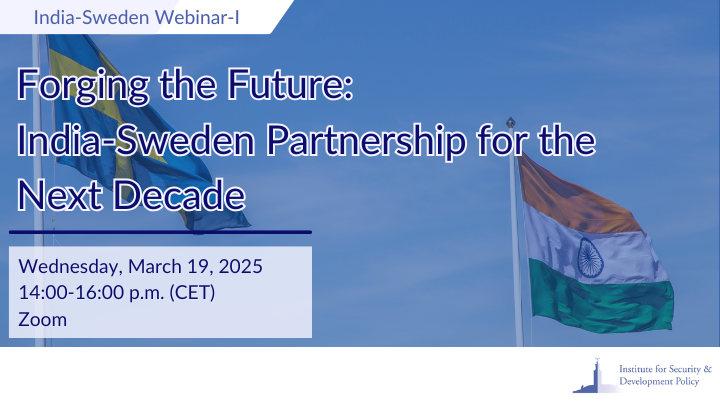
Did you miss this webinar? The full recording is available on ISDP’s YouTube channel.
India and Sweden have developed a multifaceted partnership over the years, with collaborations spanning trade, innovation, sustainability, and defense. As global geopolitics undergo significant transformations, this partnership has taken on renewed strategic importance. Sweden’s accession to NATO marks a shift in European security architecture, while India’s growing influence in the Indo-Pacific underscores its rising global stature. Both countries are committed to strengthening their bilateral ties and identifying avenues for long-term cooperation in a rapidly evolving world order.
The European security landscape is witnessing an unprecedented realignment due to the ongoing Russia-Ukraine war, the expansion of NATO, and a recalibration of strategic priorities within the European Union. Sweden’s growing engagement in these developments aligns with India’s broader foreign policy goals, particularly its emphasis on multipolarity and strategic autonomy. Sweden’s recent accession to NATO is a historic milestone, demonstrating its commitment to collective defense and security within a changing European context. This decision, which also includes a focus on Arctic security and the Baltic region, offers unique opportunities for India-Sweden defense collaboration, especially in niche areas like cold-weather operations and joint research on advanced military technologies. Sweden’s robust defense industry, exemplified by companies like SAAB, has already established a presence in India through collaborations such as the Aero India show and the upcoming manufacturing facility in Haryana. Opportunities for joint research, technology transfers, and enhanced interoperability will be explored to address emerging security challenges in both the European and Indo-Pacific theaters. India’s burgeoning space industry, highlighted by the Chandrayaan missions and the National Geospatial Policy, aligns seamlessly with Sweden’s expertise in satellite systems and ground station networks.
The Joint Working Group’s recent initiatives in space and geospatial technologies underline the potential for expanded cooperation in AI, quantum computing, and space exploration. Simultaneously, India’s Indo-Pacific engagement has gained traction through mechanisms such as the QUAD and its deepening ties with the EU through the EU-India Trade and Technology Council. These converging dynamics create an opportune moment for India and Sweden to institutionalize a long-term partnership that extends beyond conventional diplomatic engagements. Concurrently, the signing of significant trade agreements, such as the US$100 billion pact with EFTA, highlights India’s growing role as an economic powerhouse. These developments open doors for Sweden to leverage its technological prowess and innovation-driven industries to create synergies with India in emerging markets. The partnership’s potential in green innovation is immense. India’s growing renewable energy market, coupled with Sweden’s leadership in sustainable technologies, can foster breakthroughs in areas like battery manufacturing, waste-to-energy systems, and sustainable urban development. Collaborative frameworks, such as the “Samband for Climate” initiative, emphasize the shared commitment to combating climate change. Sweden’s expertise in renewable energy and green technologies complements India’s ambitious goals for energy transition. For example, initiatives such as the LeadIT partnership, which focuses on industrial decarbonization, can serve as a model for future collaborations.
This webinar co-organized by the Institute for Security and Development Policy (ISDP) with the Embassy of India in Sweden aims to explore how India and Sweden can strengthen their bilateral relations over the next decade, focusing on economic security, defense cooperation, climate resilience, and technological collaboration. It will assess whether a structured roadmap for a ten-year engagement can be envisioned and how both countries can capitalize on emerging opportunities in global governance, security, and trade.
Given the depth and scope of India-Sweden relations, the following key questions will guide the discussion:
- What are the foundational principles that should guide India-Sweden relations over the next decade?
- How can both nations leverage their economic complementarities to enhance bilateral trade and investment?
- What role can Sweden play in India’s green transition, particularly in renewable energy and sustainable infrastructure?
- How can defense cooperation between India and Sweden be expanded in light of shifting European and Indo-Pacific security dynamics?
- In what ways can India and Sweden collaborate in emerging technologies such as artificial intelligence, quantum computing, and space exploration?
- How can the two countries institutionalize a long-term strategic partnership through structured policy frameworks and agreements?
- What lessons can be drawn from existing India-EU engagements to deepen India-Sweden ties?
- How can India and Sweden align their approaches to economic security, particularly in the face of global supply chain disruptions?
- What role can knowledge exchange and academic collaborations play in strengthening people-to-people ties between the two nations?
By addressing these critical questions, this webinar aims to outline a vision for the future of India-Sweden relations, emphasizing a structured and sustainable approach to bilateral cooperation. As both nations look ahead, their shared commitment to innovation, sustainability, and strategic stability will be key drivers in shaping a resilient and future-ready partnership. The discussions will not only explore opportunities but also identify actionable strategies for fostering a dynamic and enduring India-Sweden collaboration over the next decade.
Inaugural Remarks:
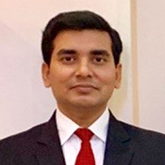 Mr. Rakesh Kumar Tiwari is the Chargé d’affaires, First Secretary (Political) at the Embassy of India, Sweden. Mr. Rakesh Tiwari is a career diplomat of the Indian Foreign Service Batch of 2017 and has been serving as the First Secretary (Political) at the Embassy of India in Stockholm since April 2023. He has been holding the position of Chargé d’Affaires (Cd’A) since August 2024.
Mr. Rakesh Kumar Tiwari is the Chargé d’affaires, First Secretary (Political) at the Embassy of India, Sweden. Mr. Rakesh Tiwari is a career diplomat of the Indian Foreign Service Batch of 2017 and has been serving as the First Secretary (Political) at the Embassy of India in Stockholm since April 2023. He has been holding the position of Chargé d’Affaires (Cd’A) since August 2024.
Prior to his current assignment, Mr. Tiwari served as Under Secretary (BIMSTEC) at the Ministry of External Affairs, New Delhi, from 2020 to March 2023. He was previously posted at the Embassy of India in Myanmar for 2.5 years, where he attained proficiency in the Burmese language, and passed the Burmese language proficiency examination with distinction. As part of his personal interest and in alignment with Indian culture, Mr. Tiwari conducted research on the linguistic evolution of the Burmese language, tracing its development from ancient Sanskrit through Pali.
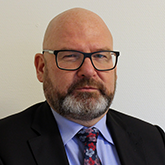 Dr. Niklas Swanström is the Director of the Institute for Security and Development Policy, Sweden; and one of its co-founders. He is a Fellow at the Foreign Policy Institute of the Paul H. Nitze School of Advanced International Studies (SAIS) and a Senior Associate Research Fellow at the Italian Institute for International Political Studies (ISPI). His main areas of expertise are conflict prevention, conflict management and regional cooperation; Supply Chain Security, Cyber Warfare and disinformation; Chinese foreign policy and security in Northeast Asia; the Belt and Road Initiative, traditional and non-traditional security threats and its effect on regional and national security as well as negotiations. His focus is mainly on Northeast Asia, Central Asia and Southeast Asia.
Dr. Niklas Swanström is the Director of the Institute for Security and Development Policy, Sweden; and one of its co-founders. He is a Fellow at the Foreign Policy Institute of the Paul H. Nitze School of Advanced International Studies (SAIS) and a Senior Associate Research Fellow at the Italian Institute for International Political Studies (ISPI). His main areas of expertise are conflict prevention, conflict management and regional cooperation; Supply Chain Security, Cyber Warfare and disinformation; Chinese foreign policy and security in Northeast Asia; the Belt and Road Initiative, traditional and non-traditional security threats and its effect on regional and national security as well as negotiations. His focus is mainly on Northeast Asia, Central Asia and Southeast Asia.
Speakers:
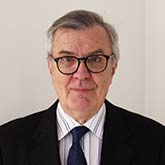 Dr. Lars Vargö is the former Swedish Ambassador to Japan (2011-14) and South Korea (2006-11). He holds a Ph.D. in Japanese studies (history) from the University of Stockholm (1982). He graduated from Uppsala University 1972 with a major in sinology. In 1972-76 he was a repeat Mombusho scholar at Kyoto University. As a diplomat, Vargö has returned to Japan four times, but has also served in Libya, Lithuania and the United States. During 2001-2005 he served as an Ambassador and the Head of the International Department of the Swedish Parliament. Vargö has published a number of books on Japan in Swedish, mainly in the fields of history and literature, but is also the author of numerous articles in Swedish, English and Japanese. He has translated Japanese novels, short stories and poetry into Swedish. He is the founder of the Seoul Literary Society. Vargö has been decorated with the “Grand Cordon of the Order of the Rising Sun” (2014), the “Kwanghwa Medal Order of Diplomatic Service” (2011) and the “Korean Red Cross Grand Taegug Award” (2007).
Dr. Lars Vargö is the former Swedish Ambassador to Japan (2011-14) and South Korea (2006-11). He holds a Ph.D. in Japanese studies (history) from the University of Stockholm (1982). He graduated from Uppsala University 1972 with a major in sinology. In 1972-76 he was a repeat Mombusho scholar at Kyoto University. As a diplomat, Vargö has returned to Japan four times, but has also served in Libya, Lithuania and the United States. During 2001-2005 he served as an Ambassador and the Head of the International Department of the Swedish Parliament. Vargö has published a number of books on Japan in Swedish, mainly in the fields of history and literature, but is also the author of numerous articles in Swedish, English and Japanese. He has translated Japanese novels, short stories and poetry into Swedish. He is the founder of the Seoul Literary Society. Vargö has been decorated with the “Grand Cordon of the Order of the Rising Sun” (2014), the “Kwanghwa Medal Order of Diplomatic Service” (2011) and the “Korean Red Cross Grand Taegug Award” (2007).
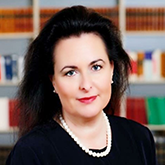 Ms. Lena Bäcker is a global Leader with over 30 years of experience at the international high-level arena. In the Swedish government, she was the Enforcement Director. For many years she was the Chairwoman for the high-level Government Think Tank for all the EU countries, the EU Commission, the European Parliament, the European Central Bank, and the European Investment-bank, in charge for the fiscals and rescue package” Task Force for Greece” by the international Troika IMF, European Central-bank, and European Commission. She has many high-level relations internationally and has been a top-level advisor to several royal families and ministers as business leaders. Since 30 years back she has had high-level board assignments in both the state and private sectors. Lena’s education at university is solid and within the government office, her highest Swedish education is a Degree of the State where her internship was with Brussels, Minister of Council and The Swedish Armed Forces by Sweden’s former Commander in Chief Mr. Micael Byden. She has been internationally awarded several times and Keynote Speaker and Guest of Honor at several international high-level events. Today Lena is Good Government Affairs International AB Group, a strategic high-level advisory firm in diplomacy and international relations. GGA has extensive and deep knowledge about India, with a broad network and connections to high-level decision-makers in 100 countries. GGA Group has a close cooperation with one of Indias largest chamber of commerce organizations, Federation of Indian Chambers of Commerce & Industry, (FICCI), with over 300.000 Indian companies in different sectors.
Ms. Lena Bäcker is a global Leader with over 30 years of experience at the international high-level arena. In the Swedish government, she was the Enforcement Director. For many years she was the Chairwoman for the high-level Government Think Tank for all the EU countries, the EU Commission, the European Parliament, the European Central Bank, and the European Investment-bank, in charge for the fiscals and rescue package” Task Force for Greece” by the international Troika IMF, European Central-bank, and European Commission. She has many high-level relations internationally and has been a top-level advisor to several royal families and ministers as business leaders. Since 30 years back she has had high-level board assignments in both the state and private sectors. Lena’s education at university is solid and within the government office, her highest Swedish education is a Degree of the State where her internship was with Brussels, Minister of Council and The Swedish Armed Forces by Sweden’s former Commander in Chief Mr. Micael Byden. She has been internationally awarded several times and Keynote Speaker and Guest of Honor at several international high-level events. Today Lena is Good Government Affairs International AB Group, a strategic high-level advisory firm in diplomacy and international relations. GGA has extensive and deep knowledge about India, with a broad network and connections to high-level decision-makers in 100 countries. GGA Group has a close cooperation with one of Indias largest chamber of commerce organizations, Federation of Indian Chambers of Commerce & Industry, (FICCI), with over 300.000 Indian companies in different sectors.
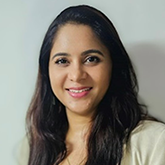 Dr. Pooja Bhatt is an Associate Professor at Jindal School of International Affairs, Jindal Global University, Sonepat. She is also the South Asia Visiting Fellow 2025 at Stimson Centre, Washington DC. She is the author of the book titled Nine-Dash Line: Deciphering the South China Sea Conundrum (Republished by Routledge June 2024; Knowledge World 2020). Previously, she worked as a Consultant with the Policy Planning & Research division, at the Ministry of External Affairs, India and Associate Writer in Indian Navy History Book project “A Decade of Transformation: The Indian Navy 2011-2021″. Pooja received her doctoral degree from the School of International Studies, Jawaharlal Nehru University, New Delhi. She also holds a diploma in the United Nations Convention on the Law of the Seas (UNCLOS) from Yeosu Academy, Korea Maritime Institute. She focuses on maritime geopolitics and governance.
Dr. Pooja Bhatt is an Associate Professor at Jindal School of International Affairs, Jindal Global University, Sonepat. She is also the South Asia Visiting Fellow 2025 at Stimson Centre, Washington DC. She is the author of the book titled Nine-Dash Line: Deciphering the South China Sea Conundrum (Republished by Routledge June 2024; Knowledge World 2020). Previously, she worked as a Consultant with the Policy Planning & Research division, at the Ministry of External Affairs, India and Associate Writer in Indian Navy History Book project “A Decade of Transformation: The Indian Navy 2011-2021″. Pooja received her doctoral degree from the School of International Studies, Jawaharlal Nehru University, New Delhi. She also holds a diploma in the United Nations Convention on the Law of the Seas (UNCLOS) from Yeosu Academy, Korea Maritime Institute. She focuses on maritime geopolitics and governance.
Moderator:
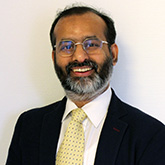 Dr. Jagannath Panda is the Head of the Stockholm Center for South Asian and Indo-Pacific Affairs (SCSA-IPA) at the Institute for Security and Development Policy (ISDP), Sweden. Dr. Panda is also a Professor at the Department of Regional and Global Studies at the University of Warsaw; and a Senior Fellow at The Hague Center for Strategic Studies in the Netherlands. As a senior expert on China, East Asia, and Indo-Pacific affairs, Prof. Panda has testified to the US-China Economic and Security Review Commission at the US Congress on ‘China and South Asia’. He is the Series Editor for Routledge Studies on Think Asia.
Dr. Jagannath Panda is the Head of the Stockholm Center for South Asian and Indo-Pacific Affairs (SCSA-IPA) at the Institute for Security and Development Policy (ISDP), Sweden. Dr. Panda is also a Professor at the Department of Regional and Global Studies at the University of Warsaw; and a Senior Fellow at The Hague Center for Strategic Studies in the Netherlands. As a senior expert on China, East Asia, and Indo-Pacific affairs, Prof. Panda has testified to the US-China Economic and Security Review Commission at the US Congress on ‘China and South Asia’. He is the Series Editor for Routledge Studies on Think Asia.